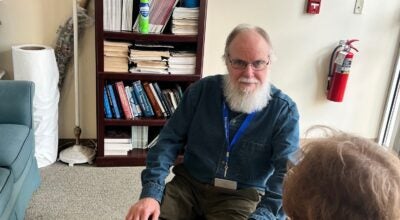Senior Living: Three ways to fight seasonal depression
Published 12:02 pm Monday, January 9, 2017
By Lisa Keller
Contributing writer
For some, the holidays bring hard feelings, triggered by an empty chair or times of personal financial struggle. But experts suggest this may be more than a moment of melancholy, especially if these emotions emerge year after year.
If you or your loved one experience unhappy holidays more than usual, it could be linked to seasonal affective disorder (SAD). According to the National Institutes of Health, SAD is a form of depression occurring during specific seasons. It is cyclical; for some, certain times of the year remind us of difficult or tragic events. While people experience this condition at various times of the year, many feel blue during the winter months — often due to a reduction in sunlight.
This condition isn’t to be confused with the “winter blues,” which is transient. SAD is a true form of depression, and therapies prescribed by a primary care provider go much further than consulting self-help books and inspirational blogs alone.
How seniors can
stand up to SAD
SAD is most commonly diagnosed in young adults. However, older adults and seniors are more likely to experience depression in general. Many people have adopted the notion that sadness is a part of the aging process; this is definitely not true. When winter isn’t wonderful anymore, seniors should shake these falsehoods and fight back with treatment and a few tips to help thaw the ice from your heart.
• Find rest in a routine. Many people struggling with depression distance themselves from their daily schedules. Sure, it feels overwhelming to block out your calendar for every single event, occasion or task, but maintaining these essentials can help you cut a reliable path through the tall woods of uncertainty.
• Make time for nutritious meals. If cooking is a chore, ask a friend for an easy recipe, or opt for slow cookers and other kitchen appliances for easy meal preparation. If energy isn’t within reach, meal delivery services can help.
• Prioritize self-care. Trying a new shampoo in your favorite scent, buying a new razor or trimmer, or getting a different hair cut or style can be a good pick-me up when starting a new routine.
• Schedule quiet time or prayer. This is an empowering way to set personal boundaries, rekindle one’s faith, and ease the mind and spirit in addition to support from a trusted therapist. Try just a few minutes a day and build up from there.
If the idea of organizing your day is too much to take in, try adding a new task to your routine every week until you find a schedule that works best for you.
• Push back with socialization. Senior adults who suffer from depression may want to shut themselves in. But no expert recommends this approach. While it’s easy to be a victim of circumstance, know that you can take control. One easy way to do this is by engaging in functions with family and friends. And if they are far from reach — literally and figuratively — new friends and “family” await you at your local senior living community or senior center. Whether you’re a resident or not, guests are often invited to enjoy concerts, play games, learn new crafts and socialize with peers.
• Realize your value. Have you ever told yourself that you feel worthless? Then tell yourself this is a lie. Regardless of your age and ability, there is always something you can do to make a difference in the lives of others. Whether it’s your talent, your time or a financial gift, know that you are significant — you just may not realize it. Why not share a thrifty family recipe with a young mother on a budget? Or teach your favorite craft to children at the local library? What deeds may seem small or outdated to you may touch the many hands reaching out.
These tips are just many of the day-to-day steps seniors can take to help bring ease when SAD emerges. But no advice can replace the guidance of a trusted medical professional. Before making changes to your lifestyle routine, consult your doctor. He or she can help rule out any underlying conditions that could mimic SAD (such as the early stages of Alzheimer’s disease or dementia), and can recommend the latest treatments to help you turn your frown around and restore your holiday cheer.
Lisa Keller is executive director of Morning Pointe of Danville.






